Ellie Rowe ketamine death: 10 years on and not much change - mum
- Published
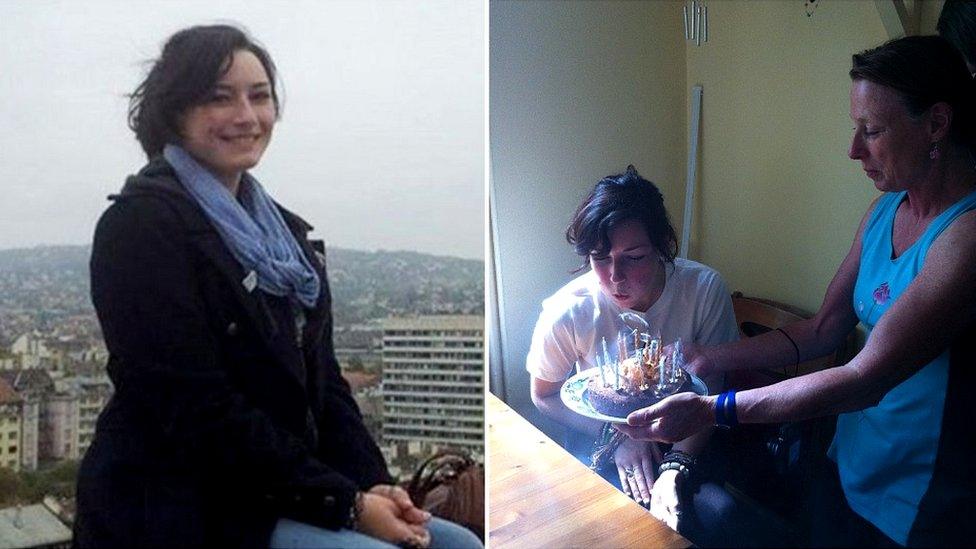
Ellie Rowe died after taking ketamine mixed with alcohol
On 8 August 2013, Wendy Teasdill's life changed forever.
Her 18-year-old daughter Ellie Rowe, died after taking ketamine at Boomtown Fair, a festival near Winchester.
Ms Rowe's mum describes her as "just extraordinary" with great compassion for other people.
But she was also "outrageous - always pushing the envelope, which is exactly what she did when when she took that little bit of extra ketamine", she added.
A decade on, Ms Teasdill, who lives in Glastonbury in Somerset, continues to campaign for better drug awareness and education, to prevent other families from going through a similar tragedy.
"I'm not going to stop because somebody might listen, something might change," she said.
Ms Teasdill is now working on a book about her daughter's legacy and what she has learned over the past 10 years.
She said it was a way of remembering Miss Rowe and reminding people "she's not a statistic. She was a person."
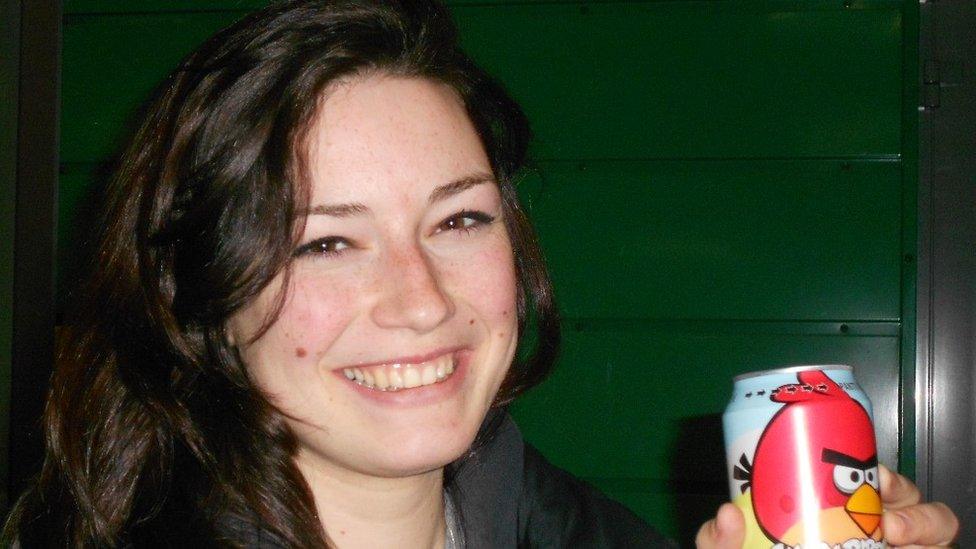
Ms Teasdill said her daughter was "very kind to people less fortunate than herself"
Ms Teasdill spoke at Boomtown, last weekend, as she does every year, this time teaming up with The Loop, a service which runs pop-up drug testing sites at festivals.
However, it was only giving out information this year due to complications around licensing.
Many festivals have not been able to host a drug testing service this summer because of what they say are changes to the law.
Events wanting to test drugs onsite have been informed they must have a Home Office-approved licence, which is costly, and can take months to come through.
The Home Office said its position had not changed and testing has always required a licence.
The Loop's professional volunteers say they have previously been able to test at events without a licence due to agreements with local police and councils.
A Home Office spokesperson said: "For the past 50 years, drug checking providers must have a licence to test controlled drugs, including at festivals, which they can apply to the Home Office for.
"We continue to keep an open dialogue with any potential applicants who wish to apply for a licence."
The Loop declined to comment on the issues surrounding licensing for drug testing.
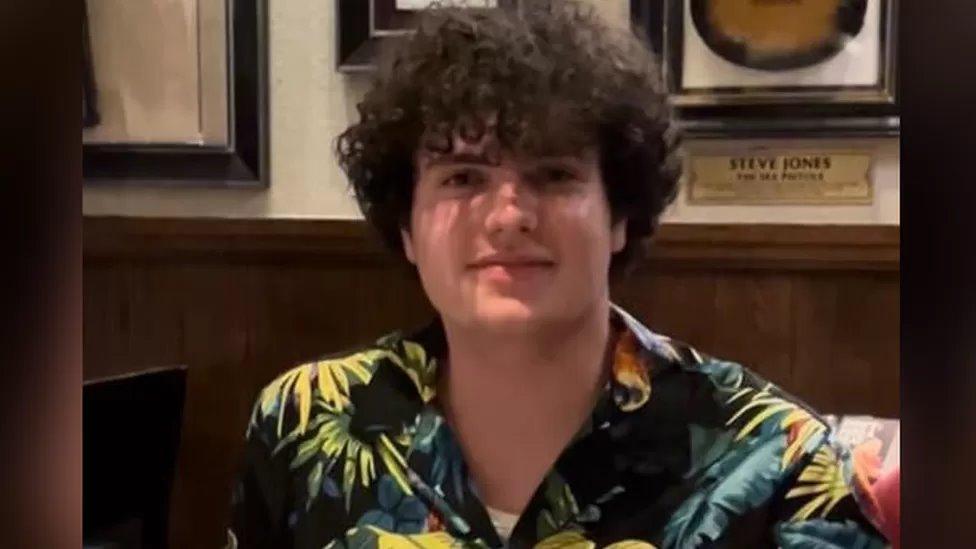
David Celino became ill at Leeds Festival on 27 August last year and died the next morning
This week the father of a 16-year-old boy, who died after taking drugs at Leeds Festival, said the event is currently not safe for under-18s.
David Celino died in hospital last August after taking MDMA at the event at Bramham Park.
Gianpiero Celino told an inquest the "ticket that signals the death of another young person has already been sold".
Festival Republic, which runs Reading and Leeds Festivals, confirmed it would be running "back-of-house" testing on confiscated substances.
During this testing, confiscated or surrendered drugs are checked behind the scenes and alerts sent out if problems are found.
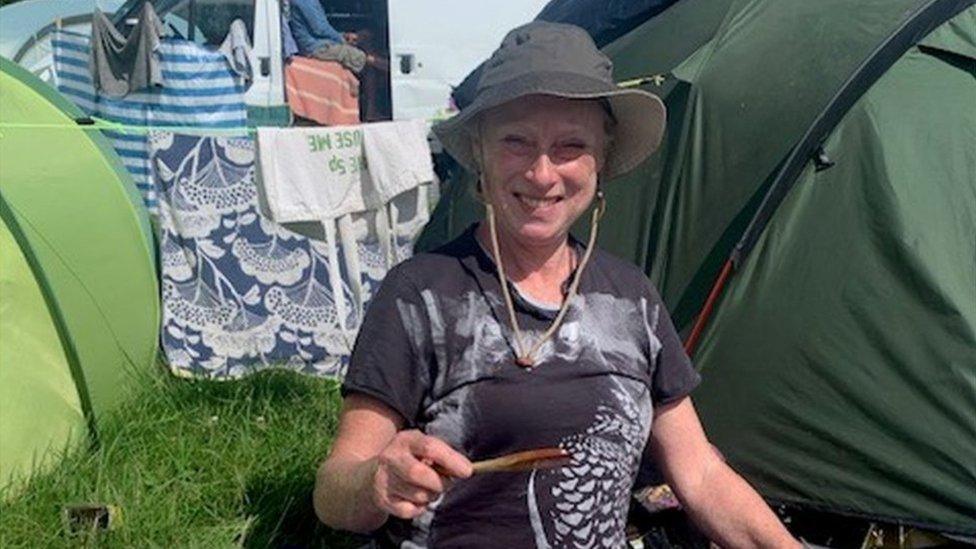
Wendy Teasdill would like to see young people "able to converse freely and openly" about the danger of drugs
Ms Teasdill said she had not seen an awful lot of change" in the past decade.
"When The Loop was there [testing drugs] I did see change. Kids were really excited to be able to test their drugs. They were being treated on the level playing field.
"Now... it's back to 'we don't want to talk about it'," she added.
Research by The Loop and Liverpool University, external found drug checking services at festivals reduced the possibility of drug-related harm.
The study found almost two thirds (61.7%) of festival goers who used The Loop's testing service in 2018 disposed of substances that were identified as different to what they expected.
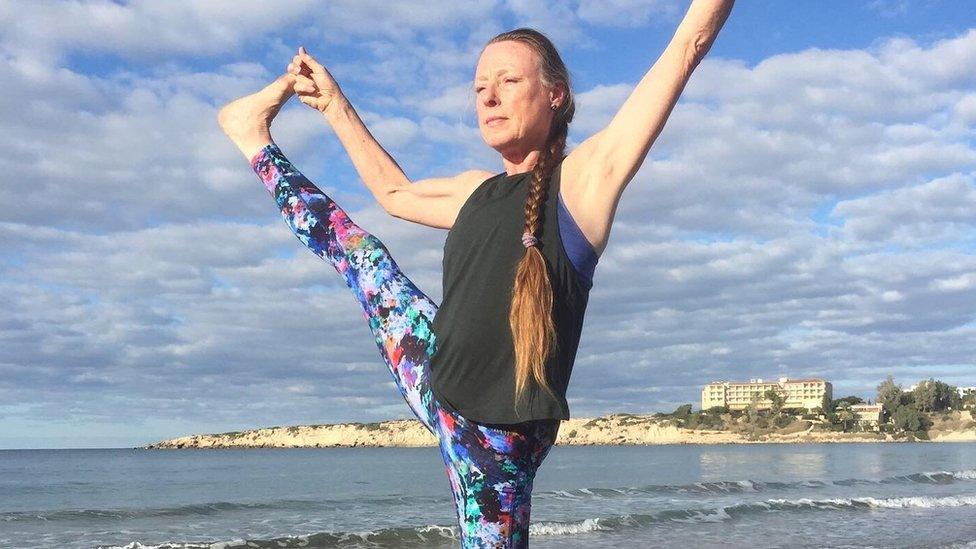
Ms Teasdill, who trains yoga teachers, recently gave out a bursary in her daughter's name
Ms Teasdill would like to see The Loop's "very valuable service" licensed to test drugs at all festivals and in all city centres.
She believes this service - where drug users can get their substances tested without fear of repercussions - could have saved her daughter's life.
Ketamine was upgraded to a Class-B drug following Miss Rowe's death.
"We all cheered," said her mum. "We thought that was great, but now I'm not so sure."
She said because drugs are illegal, young people are often reluctant to call an ambulance, "and so kids die".
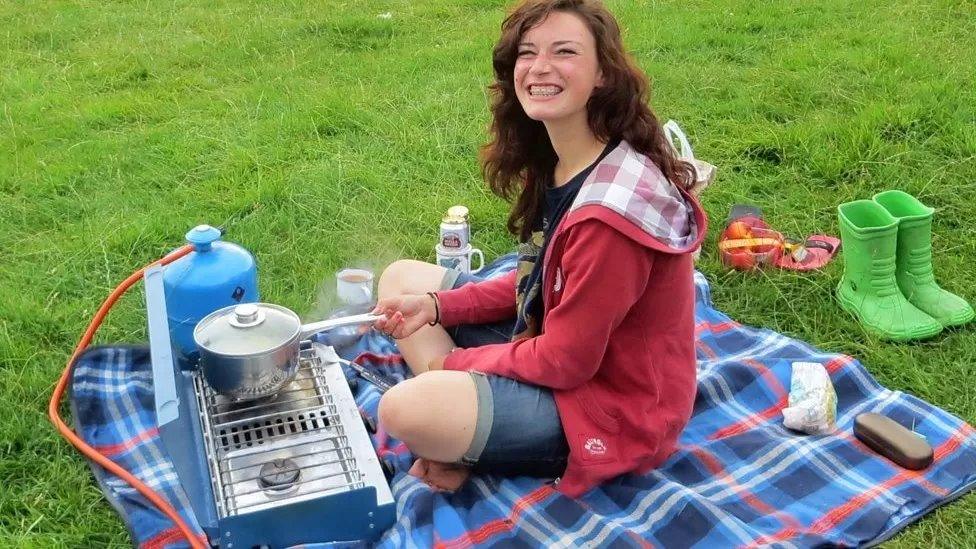
Ms Teasdill said she and her family "always have a laugh" when they talk about Ellie
"Why do I speak at Boomtown? Because, I like to talk about Eleanor. I don't want her to be dismissed as some ket-head," explained Ms Teasdill.
"I want people to know she was a living, breathing, lively, intelligent, compassionate person."
She believes drugs should be decriminalized and viewed as a medical or social problem.
"With it being illegal, this encourages the black market, and those people haven't got the the welfare of young people in mind," she added.
Boomtown Fair shared Ms Rowe's story on their social media on the 10th anniversary of her death.
"Our hearts still ache as we remember her," said the post.
The festival added taking ketamine and alcohol together was a "dangerous mix", adding: "It's essential to be educated and informed about the choices we make."

Boomtown said: "Ellie is no longer with us, but she has an important message to share about the dangers of drug use"
Ms Teasdill said, a decade after her death, her daughter would "definitely have a few suggestions on how I might hurry things along and do things a bit better".
"But I think she'd also be happy that I didn't stop talking about her."
She added: "She was really, really funny, she was generous, she was clever.
"And we never had a lot of money, but she knew she was very fortunate because she was a very, very loved child."

Follow BBC West on Facebook, external, Twitter, external and Instagram, external. Send your story ideas to: bristol@bbc.co.uk , external
- Published15 August 2023
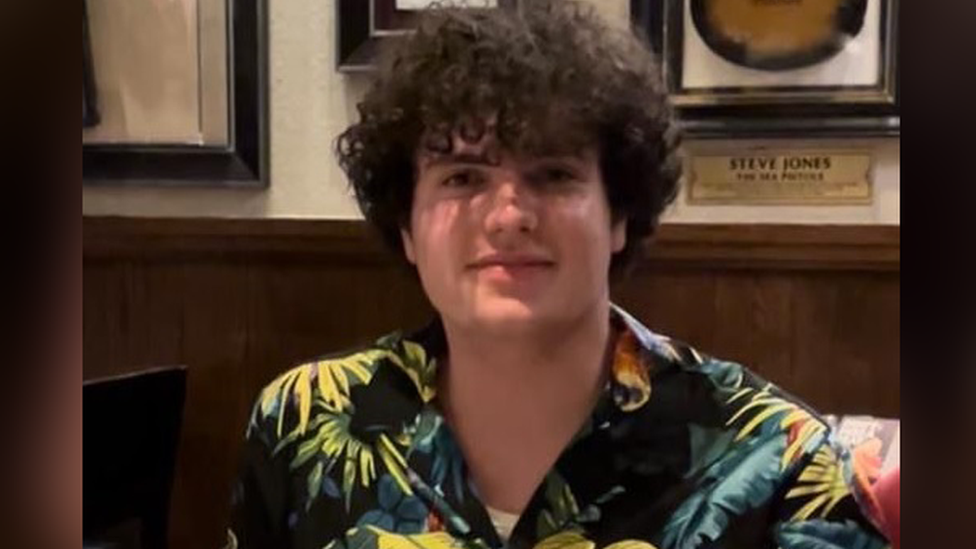
- Published3 July 2023
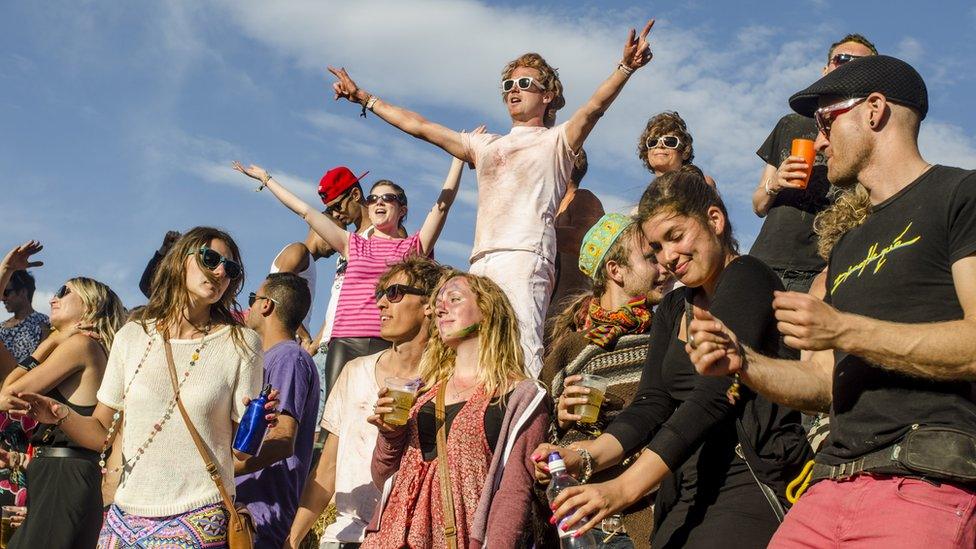
- Published26 June 2023

- Published3 July 2023
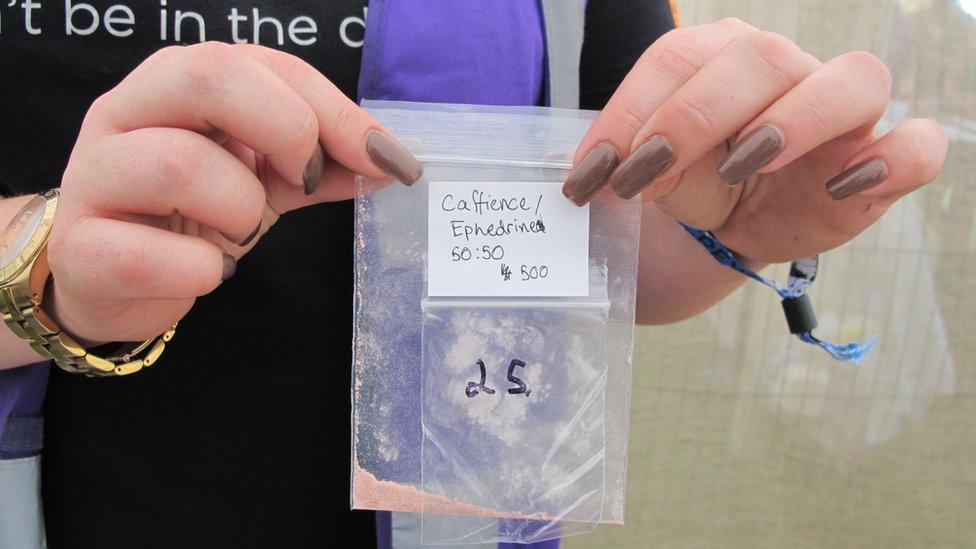
- Published12 May 2022
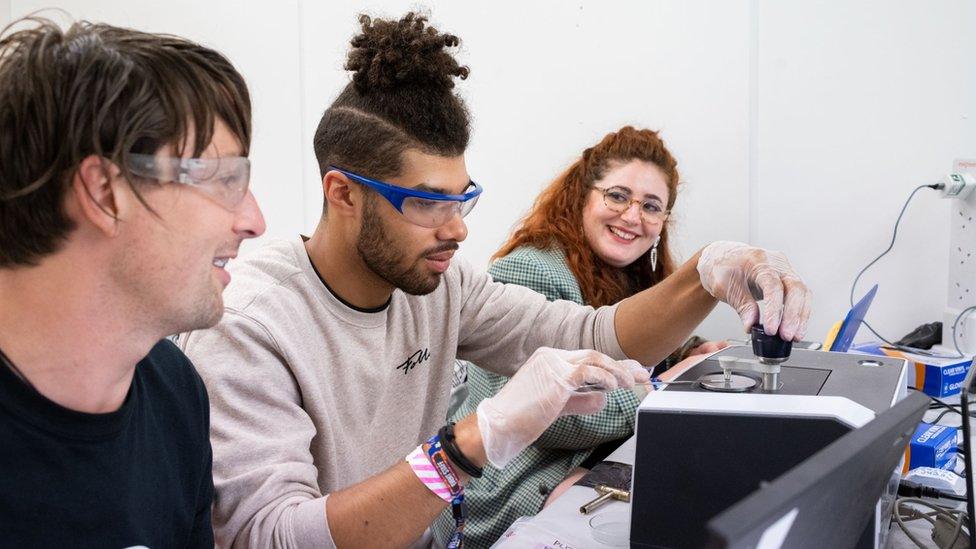
- Published13 February 2015
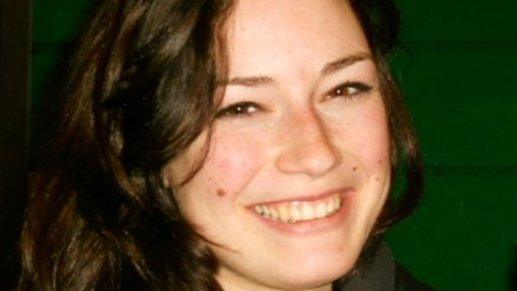
- Published30 August 2019
